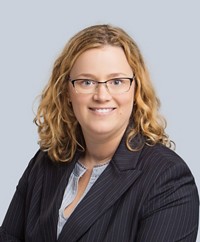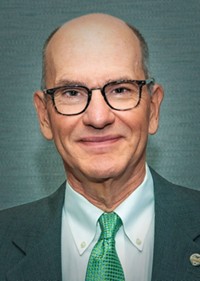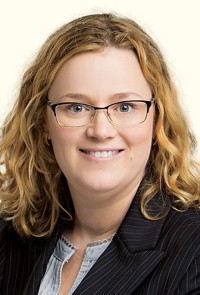Advertisement
Grab your lab coat. Let's get started
Welcome!
Welcome!
Create an account below to get 6 C&EN articles per month, receive newsletters and more - all free.
It seems this is your first time logging in online. Please enter the following information to continue.
As an ACS member you automatically get access to this site. All we need is few more details to create your reading experience.
Not you? Sign in with a different account.
Not you? Sign in with a different account.
ERROR 1
ERROR 1
ERROR 2
ERROR 2
ERROR 2
ERROR 2
ERROR 2
Password and Confirm password must match.
If you have an ACS member number, please enter it here so we can link this account to your membership. (optional)
ERROR 2
ACS values your privacy. By submitting your information, you are gaining access to C&EN and subscribing to our weekly newsletter. We use the information you provide to make your reading experience better, and we will never sell your data to third party members.
Comment
Supporting intellectual property through advocacy, education, and awards
by Kirby Drake, Chair, ACS Committee on Patents & Related Matters
April 16, 2018
| A version of this story appeared in
Volume 96, Issue 16

Innovation continues to be a key generator of economic progress, both for our country and, specifically, for the chemistry community. Intellectual property protections help ensure that inventors and innovators continue to have fair and appropriate incentives to innovate. On the recommendation of the Committee on Patents & Related Matters (CPRM), the American Chemical Society recently adopted a policy statement on intellectual property. Please take a moment to review this statement under the Advocacy tab of the ACS website.
Through its advocacy efforts in Congress and its collaboration with key government agencies, ACS actively supports the continued development of a robust intellectual property system that encourages innovation and fosters scholarly advancement, especially in the sciences. As part of these efforts, CPRM identifies opportunities for ACS to advocate on the importance of intellectual property guided by the policy statement on intellectual property. One way that CPRM stays informed about legislation that may impact intellectual property and the chemical enterprise is through Act4Chemistry, ACS’s legislative network.
As Raymond Forslund, chair of the ACS Committee on Chemistry & Public Affairs, wrote in his March 26 Comment in C&EN, Act4Chemistry provides programs and tools for members to become involved in advocacy. I encourage you to advocate for chemistry, whether it’s in the intellectual property arena, science education, R&D policy, environment, workplace, or technological competitiveness. Join the Act4Chemistry Legislative Action Network and follow Act4Chemistry on Twitter (@act4chemistry) to receive regular updates on science policy issues.
CPRM has sought ways to collaborate with the U.S. Patent & Trademark Office (USPTO) in fostering innovation through recognizing and incentivizing intellectual property protection nationally, as well as internationally, through cooperation with global legal systems. Like USPTO, CPRM recognizes that the discovery, development, and commercialization of novel scientific technologies benefits not only discoverers and investors but also the public. Protecting and leveraging intellectual property—patents, trade secrets, and copyrights—incentivizes the development of novel scientific technologies. Therefore, ACS supports policies and procedures that promote efficiency and harmonization for obtaining, protecting, and enforcing intellectual property.
ACS, through its Office of External Affairs & Communications, and CPRM have worked to improve the patent process for the benefit of the chemistry community by securing volunteer chemists and chemical engineers, both from industry and academia, to participate in USPTO’s Patent Examiner Technical Training Program. By providing guest lecturers, ACS helps provide technical training and expertise to USPTO’s patent examiners. This valuable service helps patent examiners keep pace with the recent developments in chemistry. We are seeking volunteer speakers to discuss emerging developments in the chemical sciences, and we need more guest lecturers.
I call upon ACS members to volunteer to serve as guest lecturers. Guest lecturers should have relevant, historic, and current technical knowledge, including of industry practices and standards in technological areas of interest. Guest lecturers must also be familiar with prior art and industry practices and standards in areas of technologies where such lectures would be beneficial. Guest lecturers have the option of presenting a lecture in person or virtually. If you are interested in serving as a guest lecturer, please email patents@acs.org.
Advertisement
CPRM is also collaborating with USPTO to solicit nominations for USPTO’s Patents for Humanity Awards. These awards recognize innovators who use new technology to meet global humanitarian challenges. Submissions are evaluated on the “effectiveness of their technology at addressing a humanitarian issue, the contributions made by applicants to increase use of their technology among the impoverished, and the impact those contributions have made to improve lives,” according to the USPTO website.
CPRM also engages in a variety of activities, each closely aligned with the ACS Strategic Plan. CPRM strives to educate ACS members about intellectual property issues affecting chemistry and ACS members. CPRM makes publications and informational materials on these and other topics freely available through the ACS website.
CPRM also works to promote recognition of chemist and chemical engineer inventors’ contributions by recommending that the ACS Board nominate deserving chemists and chemical engineers for external awards such as the National Inventors Hall of Fame. Recent chemists receiving this honor include ACS members Marvin Caruthers, for developing the methods for chemically synthesizing DNA, and Sumita Mitra, for inventing the first dental filling material to include nanoparticles. CPRM also recommends nominations for the National Women’s Hall of Fame, the National Medal of Technology & Innovation, and the National Medal of Science.
CPRM welcomes your suggestions for these important awards. Please send your suggestions and any other comments you may have about CPRM’s activities to patents@acs.org.
Views expressed are those of the author and not necessarily those of C&EN or ACS.





Join the conversation
Contact the reporter
Submit a Letter to the Editor for publication
Engage with us on Twitter